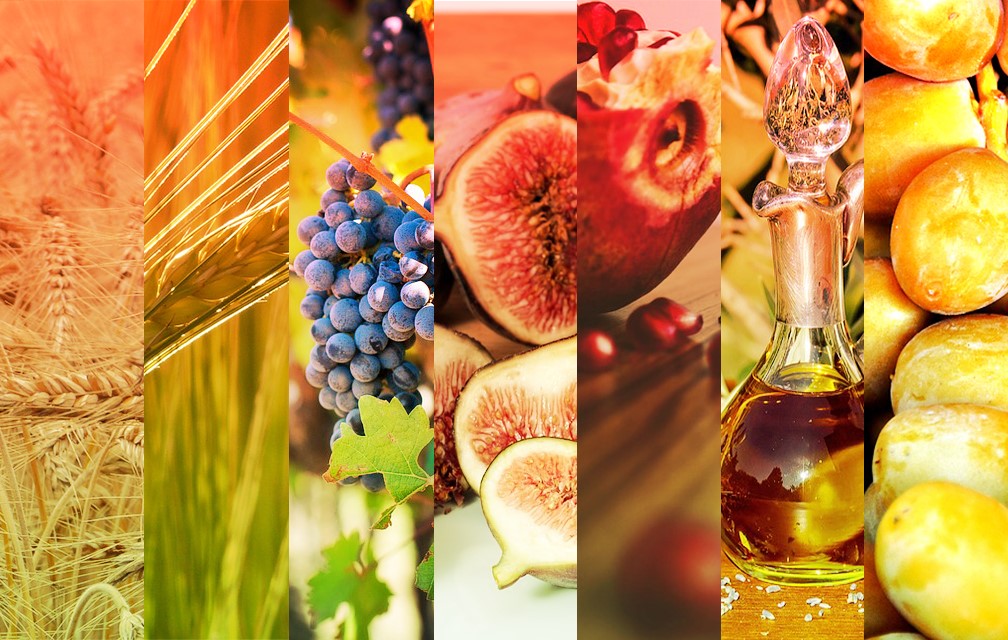
According to the Torah, there are a few foods that made ancient Israel’s agriculture very special: wheat, barley, grapes, figs, pomegranates, olive oil, and dates. Together, these ingredients are known as the "seven species," and on Tu B'Shevat, known as the New Year for the Trees, it's traditional to enjoy all of them.
Each member of the seven species also represents something special. According to this article by My Jewish Learning, their symbolism is as follows:
-
Wheat represents chesed, kindness, because it is so nourishing and accessible.
-
Barley is the embodiment of gevura, restraint, due to its thick hull.
-
Grapes signify tiferet, beauty, due to their color and manner of growing.
-
Figs represent netzach, endurance, for their lengthy ripening stages.
-
Pomegranates symbolize hod, majesty or glory, for their crown shape.
-
Olive oil represents yesod, foundation, for the staple role that the ingredient plays in many foods.
-
Dates denote malchut, kingdom, thanks to their digestive benefits.

When a person tastes the seven species on Tu B’Shevat, they're showing an appreciation for nature and gratitude for the world all around them.
Looking for a delicious way to taste and explore the seven species? Scroll down for a few ideas:
WHEAT

Image via The Nosher
This recipe from the Nosher puts a seven species (and healthy) twist on challah by using whole wheat flour -- without losing the bread’s soft texture. It’s a wonderful and tasty way to start celebrating for Tu B’Shevat.
BARLEY
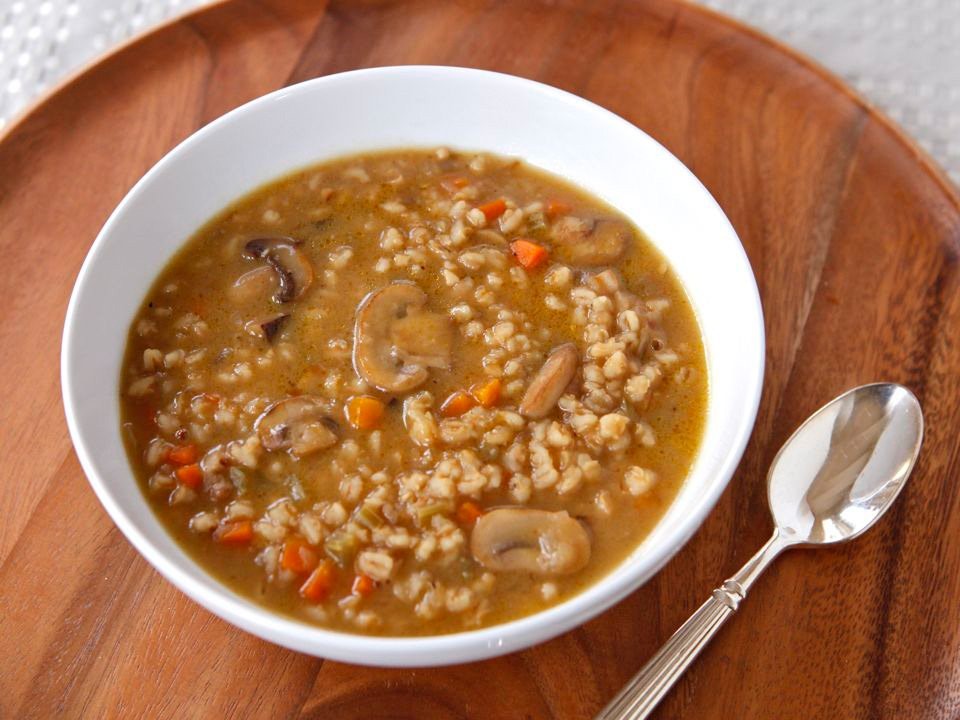
Image via Tori Avey
Barley soup is considered one of the ultimate comfort foods, so if you’re in need of some seven species-style comfort, definitely try out this hearty mushroom barley soup from Tori Avey.
GRAPES
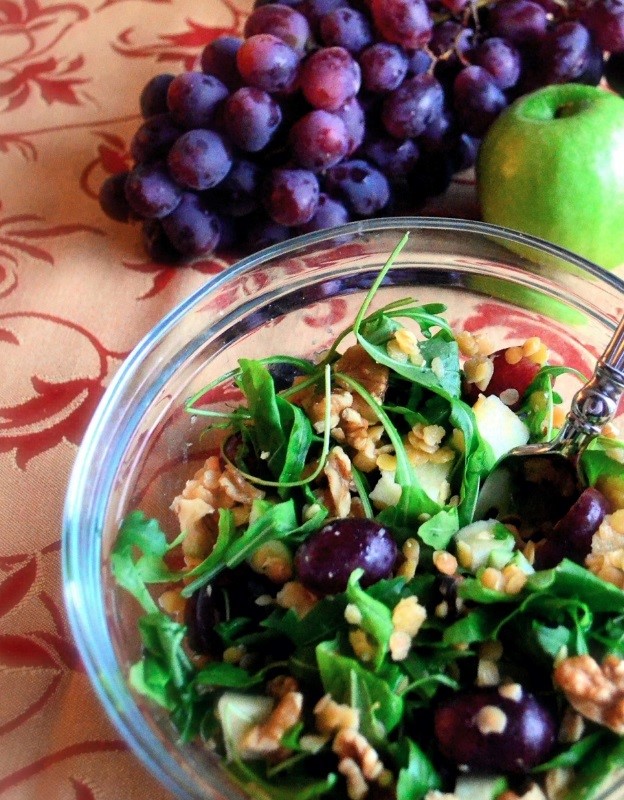
Image via Joy of Kosher
We know you’re tempted to eat those juicy grapes right off the vine, but you might want to control yourself. They can also make a sweet addition to this salad from Joy of Kosher.
FIGS

Image via The Forward
Hamentaschen might be a Purim pastry, but by adding some figs, they’ll become a Tu B’Shevat, seven species classic! Check out this recipe from the Forward to enjoy them for yourself.
POMEGRANATES

Image via Joy of Kosher
Ever heard of Pomegranate cupcakes? Yeah, we hadn’t either. But we’re sure glad that we know about them now, thanks to this charming recipe from Joy of Kosher!
OLIVE OIL
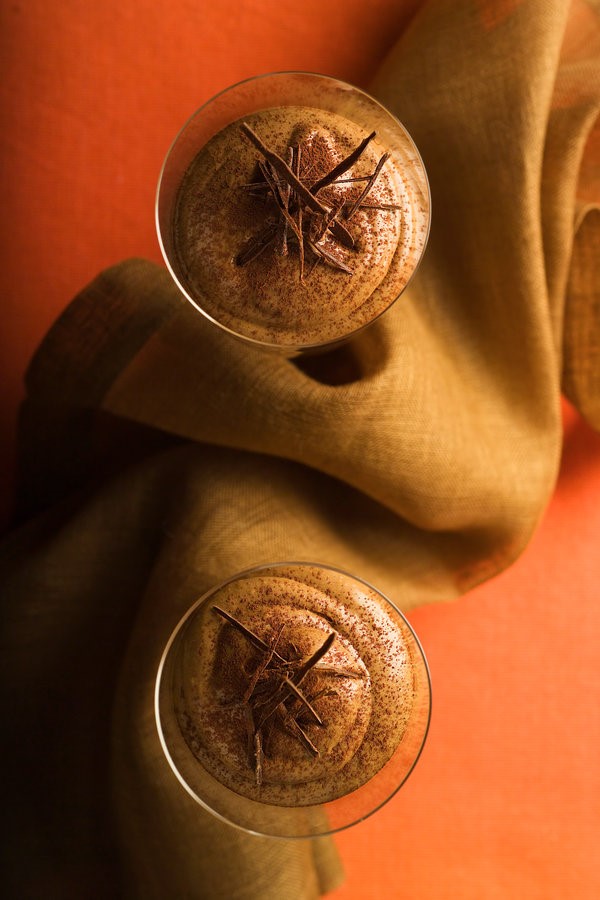
You probably use a ton of olive oil in your cooking. Why don’t you reward yourself with this luscious yet easy chocolate and olive oil mousse from the New York Times?
DATES
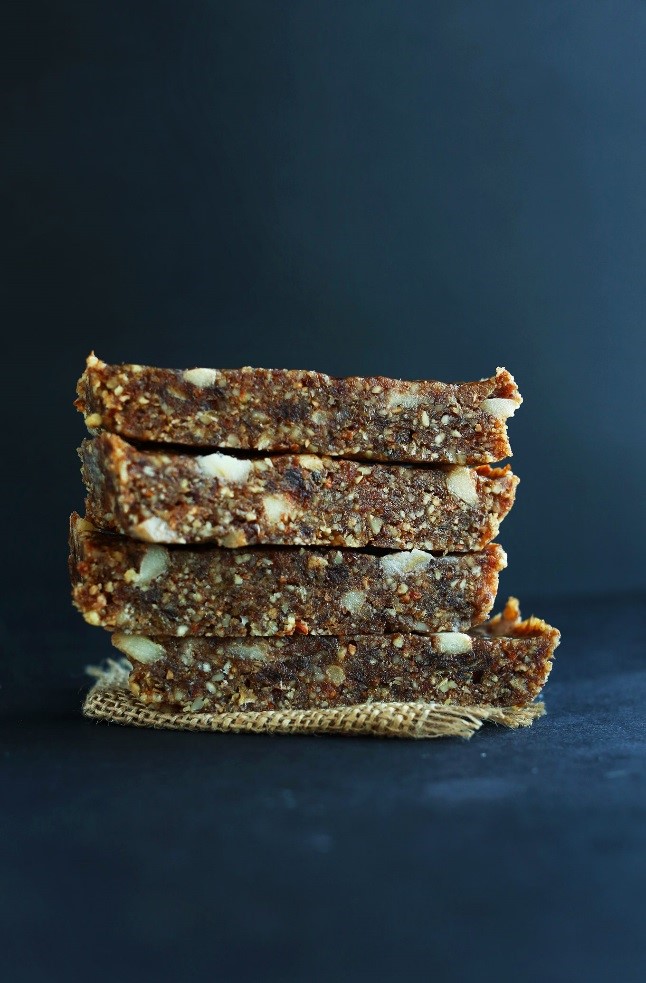
Image via The Minimalist Baker
Whether you’re looking for a quick, filling breakfast or an afternoon snack, try out these vegan apple pie date bars. They’re a tasty, healthy food to munch on, no matter the time of day! Definitely take a look at the recipe from Minimalist Baker.
Looking for more Tu B’Shevat activities, book lists, and ideas? Click here.
December 23, 2017